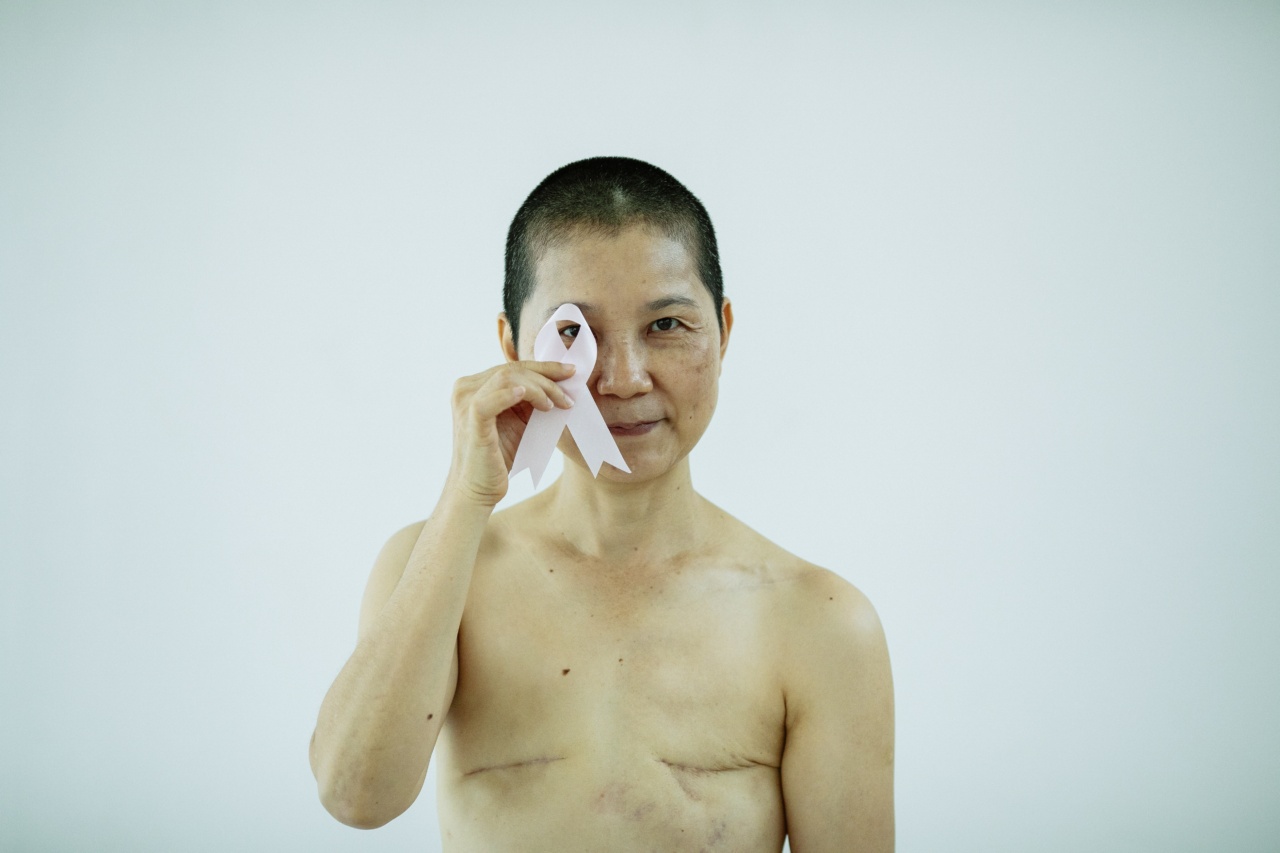Breast pain, also known as mastalgia, is a common complaint among women. It can range from mild discomfort to severe pain, and may occur in one or both breasts.
The causes of breast pain can vary, and it is important to understand the underlying reasons in order to seek appropriate treatment. In this article, we will delve into the various factors that can contribute to breast pain.
Hormonal Changes
One of the primary causes of breast pain is hormonal fluctuations. Hormonal changes occur naturally during the menstrual cycle, and can cause breast tenderness and discomfort.
This type of breast pain is commonly referred to as cyclical mastalgia, as it tends to occur in a predictable pattern related to a woman’s menstrual cycle. It typically starts a few days before menstruation and resolves once the period begins.
Breast Cysts
Breast cysts are fluid-filled sacs that can form in the breasts. They are common and usually benign (noncancerous). However, their presence can cause breast pain. Cysts can vary in size and may feel smooth or lumpy.
Women with cysts often experience breast pain that is more localized and may be accompanied by swelling or a feeling of fullness in the affected breast. In some cases, these cysts can be drained to provide relief from the pain.
Fibrocystic Breast Changes
Fibrocystic breast changes are another potential cause of breast pain. This condition is characterized by the development of fibrous tissue and cysts in the breasts.
The exact cause of fibrocystic breast changes is not well understood, but it is believed to be linked to hormonal imbalances. Women with fibrocystic breasts may experience breast pain that is cyclic in nature, similar to hormonal breast pain, and may also notice changes in breast texture, such as thickening or lumps.
Breast Infection
Breast infections, also known as mastitis, can lead to breast pain. Mastitis is most commonly seen in women who are breastfeeding, as it is often caused by bacteria entering the breast through cracked or sore nipples.
The infection can cause localized breast pain, redness, swelling, and warmth. Prompt medical attention and treatment with antibiotics are necessary to clear the infection and alleviate the pain.
Injury or Trauma
An injury or trauma to the breast can cause pain and discomfort. This can occur due to accidents, falls, or direct blows to the chest area. Even minor injuries, such as a bruise or strain, can result in breast pain.
It is important to seek medical evaluation if you have experienced any trauma to the breast, as it may require treatment or further investigation to rule out any underlying damage.
Breast Surgery
Breast surgery, such as breast augmentation, reduction, or reconstruction, can lead to post-operative breast pain. The extent and duration of the pain may vary depending on the type of surgery performed, individual pain tolerance, and healing process.
It is important to follow the post-operative care instructions provided by the surgeon and report any unusual or severe pain to ensure proper healing and recovery.
Caffeine and Dietary Factors
Consumption of caffeine and certain dietary factors have also been associated with breast pain. Caffeine is believed to stimulate the breast tissue, potentially causing increased breast pain in susceptible individuals.
Additionally, a high fat diet or excessive consumption of certain foods, such as chocolate or processed foods, may exacerbate breast pain. Reducing caffeine intake and adopting a balanced and nutritious diet may help alleviate breast pain in some cases.
Medications
Certain medications can contribute to breast pain as a side effect. Hormonal therapies, such as hormone replacement therapy (HRT) or oral contraceptives, may cause breast tenderness or discomfort.
Antidepressants, such as selective serotonin reuptake inhibitors (SSRIs), have also been linked to breast pain in some individuals. If you suspect that a medication you are taking is causing breast pain, consult your healthcare provider for alternative options or adjustments to your current regimen.
Breast Cancer
While breast cancer is not a common cause of breast pain, it is important to be aware of its possibility. Breast cancer-related breast pain is typically described as a non-cyclical pain, meaning it is not related to the menstrual cycle.
Other associated symptoms may include changes in breast appearance, nipple discharge, or the presence of a lump. If you are experiencing persistent or unexplained breast pain, it is crucial to seek medical evaluation to rule out any underlying malignancies.
Anxiety and Stress
Psychological factors, such as anxiety and stress, can also contribute to breast pain. Emotional distress can affect the body in various ways, including exacerbating physical symptoms.
Women who experience high levels of stress or anxiety may be more prone to breast pain or may perceive the pain more intensely. Implementing stress management techniques, such as mindfulness, meditation, or regular exercise, may help alleviate breast pain related to psychological factors.
Conclusion
Breast pain can have various causes, ranging from hormonal changes to breast cysts, infections, injuries, medications, and even psychological factors.
Understanding the underlying causes of breast pain is crucial in order to determine appropriate treatment and alleviate discomfort. If you are experiencing breast pain that is persistent, severe, or accompanied by other concerning symptoms, it is important to consult a healthcare professional for evaluation and guidance.





























